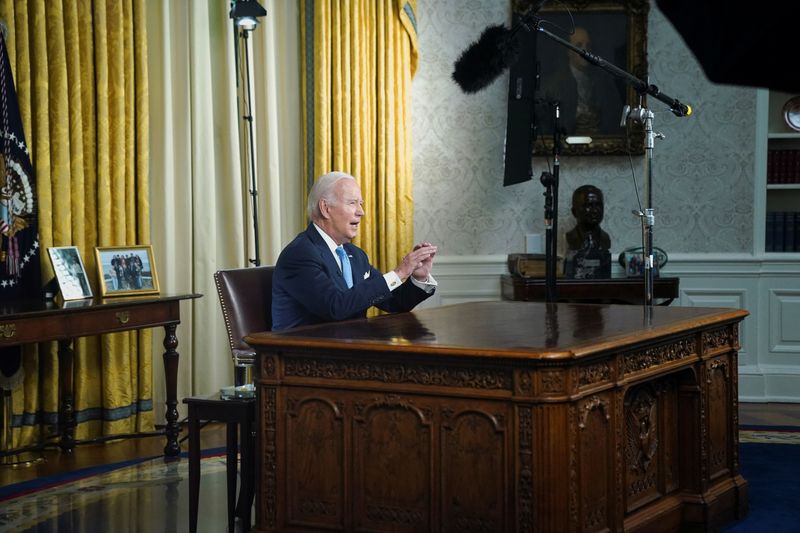By Trevor Hunnicutt
WASHINGTON (Reuters) -President Joe Biden on Saturday signed a bill that suspends the U.S. government's $31.4 trillion debt ceiling, averting what would have been a first-ever default with just two days to spare.
The House of Representatives and the Senate passed the legislation this week after Biden and House of Representatives Speaker Kevin McCarthy reached an agreement following tense negotiations.
The Treasury Department had warned it would be unable to pay all its bills on Monday if Congress had failed to act by then.
Biden signed the bill at the White House a day after hailing it as a bipartisan triumph in his first-ever Oval Office address to the nation as president.
The bill signing, which was closed to the press, marked a low-key, symbolic end to a crisis that vexed Washington for months, forced Biden to cut short an international trip in Asia and threatened to push the United States to the brink of an unprecedented economic crisis.
"Thank you to Speaker McCarthy, Leader Jeffries, Leader Schumer, and Leader McConnell for their partnership," the White House said in a statement announcing the bill's signing, naming the Democratic and Republican leaders of the House and Senate.
Officials later released a ten-second clip of Biden silently signing the document at the White House.
"It was critical to reach an agreement, and it's very good news for the American people," Biden said on Friday. "No one got everything they wanted. But the American people got what they needed."

The Republican-controlled House voted 314 to 117 to approve the bill, and the Democrat-controlled Senate voted 63 to 36.
Fitch Ratings said on Friday the United States' "AAA" credit rating would remain on negative watch, despite the agreement that will allow the government to meet its obligations.